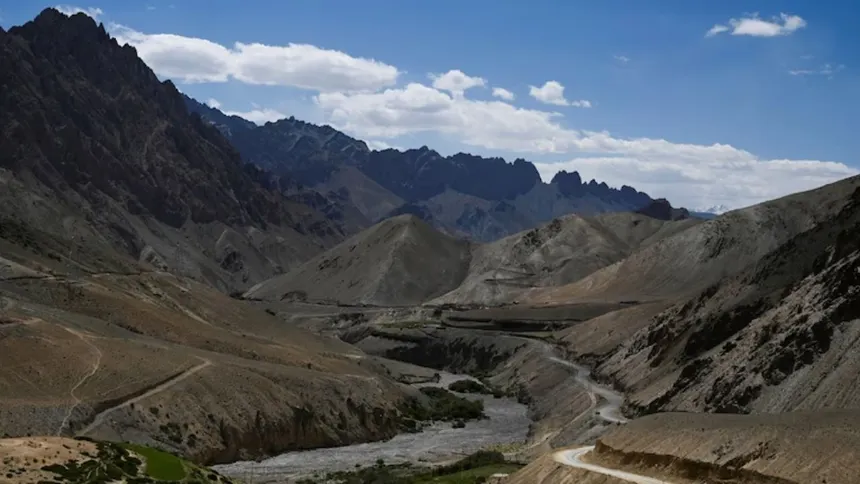Hong Kong’s government has emphasised that academic freedom remains in the special administrative region. My experience has reflected this — I have not been told what to write or even what to teach in the classroom. I have also not censored my own lessons. I have taught Hong Kong politics and other topics as I did before the introduction of the 2020 National Security Law (NSL). But there has been a growing sense of fear in Hong Kong academia.
Many are talking about the academic ‘red line’ but no one is certain where it is. Shortly after the Chinese government implemented the NSL in 2020, some government advisers privately expressed that academic freedom remained and only advocacy for independence or similar political concerns would be a problem.
But many others were not convinced. Academic programs were changed as politics departments were merged, modified or renamed. China-related topics were removed from syllabi and words were replaced to match those used by the government. Research shifted to safer topics, some prominent Hongkonger political scholars have left, and remaining scholars have cautioned each other about crossing the red line.
The worries were not without reason. Concerns were raised by both the words and actions of government officials. Government officials have promoted a discourse of ‘soft resistance’ to discern behaviour that should be banned under the law. The term was not just vague but also indicated to some that any criticism of politics and policies could be punished. In addition, the government resuscitated the colonial-era law on sedition which also mentions acts that incite ‘disaffection’ towards the government.
The government has stated that criticism would be allowed if alternative solutions were offered. But the limits are ambiguous. It is unclear whether it is still legally possible to criticise the Chinese regime or the ‘one country, two systems’ arrangement in Hong Kong. Universities have removed all references to the 1989 crackdown on Tiananmen Square protestors in Beijing. Public libraries and bookstores have purged works and books by pro-democracy authors, especially targeting Chinese-language versions. While university libraries have not strictly limited access to their materials, the University of Hong Kong has already made library users register to access some politically sensitive books.
Films are being censored and theatre plays have been axed following pressure on the organisers. People in the media have speculated on whether watching certain documentaries could be illegal. Virtually all critical content has been removed from school textbooks such that they now simply praise the government and Hong Kong’s economic development. Universities have introduced mandatory national security education and started regular flag-raising ceremonies. Some universities have also kept physical gates in place that bar entrance to uninvited visitors, which were set up after the 2019–2020 protest movement.
There are now numerous areas in which scholars could potentially run afoul of the law. The sedition law could be used against a scholar if the government proved the existence of intent to bring contempt to the Chinese or Hong Kong government or the political system. Ownership of publications declared seditious can also be punished and government assurances that this would depend on the intent of those found with the material may not provide sufficient protection.
Additional concerns have arisen from the fast-tracked legislation of Article 23 of the Basic Law that came into effect on 23 March 2024. The law aims to punish the release of state secrets, including those related to the ‘economic or social development of China’ or the Hong Kong Special Administrative Region. This could theoretically cover some aspects of scholarly study. Though the law seeks to limit the extent of what is punishable, it would eventually be left to a court’s judgment to decide the seriousness of a particular matter. Scholars may simply avoid certain topics altogether to avoid any problems.
While social scientists have not yet been targeted for their research under the NSL, there have been many instances that indicate tighter restrictions on academics. Rowena He, a scholar working on issues related to the Tiananmen Square protests, was denied a visa and then lost her tenured job at the Chinese University of Hong Kong. Foreign academics researching the Hong Kong protests or Chinese politics have been denied entrance or faced hours of investigation at Hong Kong’s border.
The government has declared that it will investigate the national security risk posed by individuals before giving them work visas, but the lack of transparency in such processes is cause for deep concern. It is not surprising that a 2024 publication found Hong Kong’s ranking in the Academic Freedom Index had significantly declined to be among the bottom 10–20 per cent of 179 surveyed countries while remaining ahead of mainland China.
The insidious nature of self-censorship is such that it thrives on uncertainty. ‘National security with Chinese characteristics’ is a very wide-reaching concept. It includes aspects such as ‘economic security’ and ‘science and technology security’. China’s concept of national security places ‘political security’ — which includes ‘regime security’ — as the fundamental objective so that criticism can only be constructive and the regime cannot be touched. But the problem lies in discerning the line between fair academic inquiry and violations of the law.












